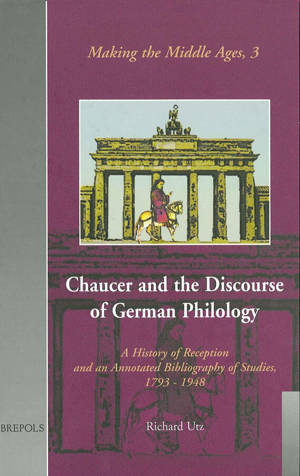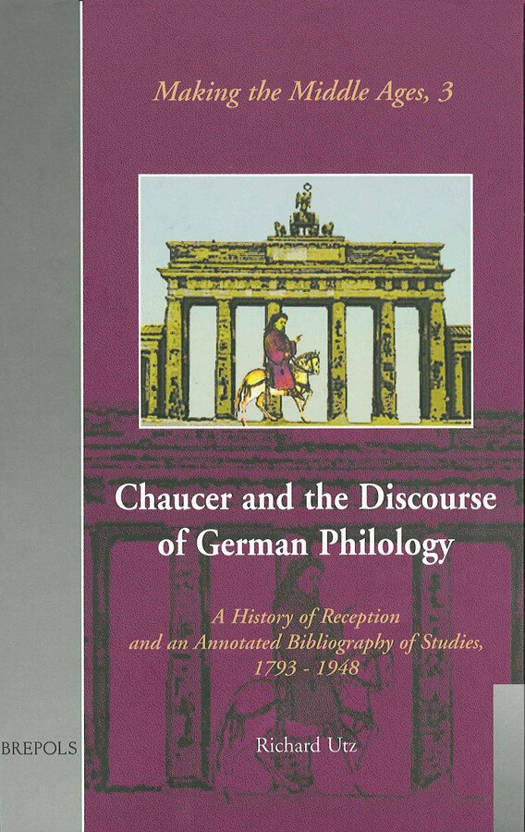
- Afhalen na 1 uur in een winkel met voorraad
- Gratis thuislevering in België vanaf € 30
- Ruim aanbod met 7 miljoen producten
- Afhalen na 1 uur in een winkel met voorraad
- Gratis thuislevering in België vanaf € 30
- Ruim aanbod met 7 miljoen producten
Zoeken
Chaucer and the Discourse of German Philology
A History of Reception and an Annotated Bibliography of Studies, 1798-1948
Richard Utz
Hardcover | Engels
€ 58,30
+ 116 punten
Omschrijving
In the nineteenth and early twentieth century, German-speaking scholars played a decisive role in founding and shaping the study of medieval and early modern English language and culture. During this process, aesthetic and literary enthusiasms were gradually replaced, first by broadly comparative and then by increasingly narrow scientistic practices, all confusingly subsumed under the term 'philology'. Towards 1871, German and Austrian Anglicists were successful at imposing-- for about 30 years -- many of their philological discoursive practices on their English-speaking counterparts by focusing on strict textual criticism, chronology, historical linguistics, prosody, and literary history. After World War I, these philological practices were rejected in the U.K. and the United States because they were 'Made in Germany', but have remained essential features of German medieval scholarship until the present day. This book offers a case study of these foundational developments by investigating the reception of Geoffrey Chaucer by eminent scholars such as V.A. Huber, W. Hertzberg, B. ten Brink, J. Zupitza, E. Fluegel, and J. Koch. The narrative of their nationalist, scientist, and self-fashioning efforts is complemented by a comprehensive annotated bibliography of German Chaucer criticism between 1793 and 1948.
Specificaties
Betrokkenen
- Auteur(s):
- Uitgeverij:
Inhoud
- Aantal bladzijden:
- 468
- Taal:
- Engels
Eigenschappen
- Productcode (EAN):
- 9782503510866
- Verschijningsdatum:
- 24/10/2002
- Uitvoering:
- Hardcover
- Formaat:
- Genaaid
- Gewicht:
- 965 g

Alleen bij Standaard Boekhandel
+ 116 punten op je klantenkaart van Standaard Boekhandel
Beoordelingen
We publiceren alleen reviews die voldoen aan de voorwaarden voor reviews. Bekijk onze voorwaarden voor reviews.







